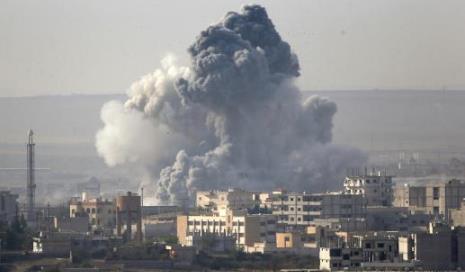At least 35 people were killed in riots last week when members of Turkey`s 15-million-strong Kurdish minority rose up in anger at the government for refusing to help defend the Syrian border town of Kobani from an Islamic State assault.
The jailed leader of Turkey`s banned Kurdistan Workers Party (PKK) has threatened to call off talks to end a decades-old insurgency in Turkey if no progress is made by Wednesday.
Hurriyet newspaper`s website said Turkish warplanes had hit PKK targets in Turkey on Sunday, the first such strikes since a peace process began in Turkey two years ago. The strikes were also reported by media sympathetic to the PKK.
A U.S.-led coalition is launching air strikes against Islamic State fighters who control swathes of Syria and seized much of northern Iraq in recent months. The turmoil in Turkey shows the danger of spillover from two complex multi-sided civil wars in which every country in the Middle East has a stake.
Ankara has refused to join the U.S.-led military coalition against Islamic State unless it also confronts Syrian president Bashar al-Assad. On Monday it denied U.S. assertions that it had agreed to let American planes take off from its air bases.
Meanwhile, Islamic State fighters have been fighting their way into the mainly Kurdish Syrian border town of Kobani, where the United Nations says thousands could be massacred within full view of Turkish tanks that have done nothing to intervene.
The fate of Kobani could wreck efforts by the Turkish government to end a three decades long insurgency by PKK militants, a conflict that killed 40,000 people but largely ended with the start of a peace process in 2012.
There was no immediate comment from the military on the report that it bombed Kurdish positions, once a regular occurrence in southeast Turkey but something that had not taken place for two years.
Hurriyet said the air strikes on Sunday caused "major damage" to the PKK. They were launched after three days of PKK attacks on a military outpost in Hakkari province near the Iraqi border, it added.
"F-16 and F-4 warplanes which took off from (bases in the southeastern provinces of) Diyarbakir and Malatya rained down bombs on PKK targets after they attacked a military outpost in the Daglica region," Hurriyet said.
It said the PKK had attacked the outpost for three days with heavy machine guns and rocket launchers. The general staff said in a statement it had "opened fired immediately in retaliation in the strongest terms" after PKK attacks in the area, but did not mention air strikes.
Jailed PKK co-founder Abdullah Ocalan has said peace talks between his group and the Turkish state could come to an end by Wednesday. After visiting him in jail last week, Ocalan`s brother Mehmet told reporters the PKK leader had said: "We will wait until Oct. 15. We will convey to the visiting delegations our thoughts. After that there will be nothing we can do."
The peace process with the Kurds is one of the main initiatives of President Tayyip Erdogan`s decade in power, and its potential collapse shows the difficulty Turkey has had in designing a Syria policy. Turkey has already taken in some 1.2 million refugees from Syria`s three-year civil war, including 200,000 Kurds who fled the area around Kobani in recent weeks.
U.S. officials have expressed frustration at Erdogan`s refusal to help them fight against Islamic State.
More about:















































